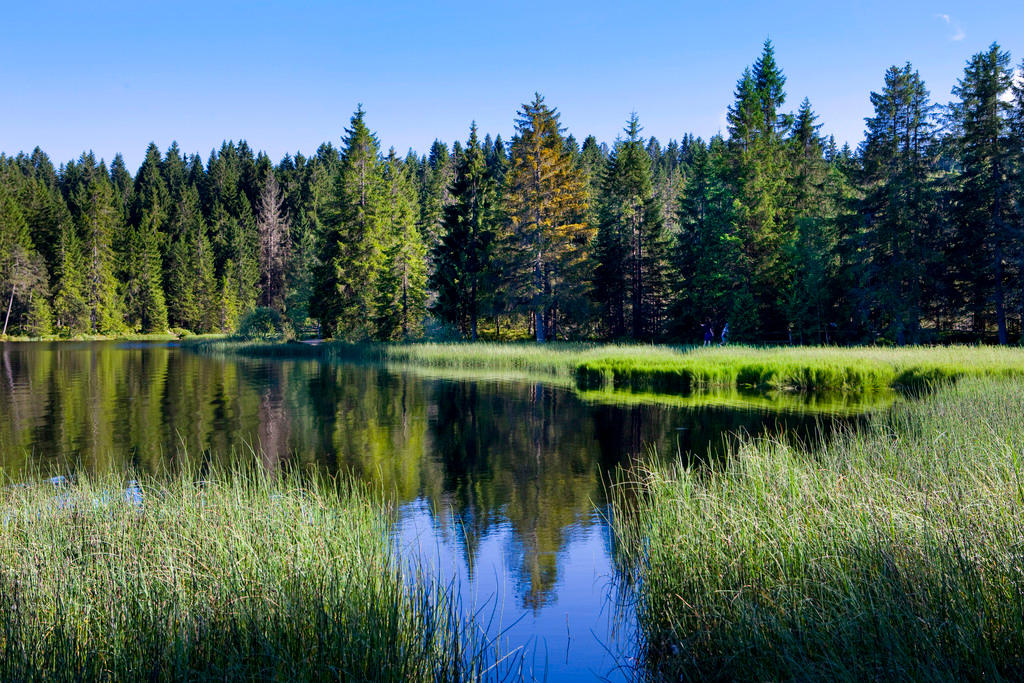
Blue-winged Grasshopper named Swiss animal of the year

The conservation group Pro Natura has chosen the Blue-winged Grasshopper as its animal of the year, 2023.
It is one of 115 grasshopper species native to Switzerland and is named after its distinctive azure colouring on its wings.
When its wings are folded, the Blue-winged Grasshopper blends into its surroundings, typically on stony valley floors.

More
Reports sound alarm bells for Swiss biodiversity
When disturbed the two centimetre-long insect will jump up and dazzle predators with its colouring before adopting camouflage mode on landing again.
The Blue-winged Grasshopper, also known by its Latin name of Oedipoda caerulescens, thrives in warm conditions and can adapt to human-made terrains such as gravel pits and railway areas.
However, many of its natural habitats have been destroyed over the last 100 years.
This is in common to many of Switzerland’s 30,000 native insect species. Pro Natura says that 60% of Swiss insect species are threatened as a result.
The organisation is calling for meadows and pastures to be protected and for other habitats, like floodplains, to be restored as nature areas.

More
Will the new biodiversity framework help us live in harmony with nature?

In compliance with the JTI standards
More: SWI swissinfo.ch certified by the Journalism Trust Initiative




























You can find an overview of ongoing debates with our journalists here . Please join us!
If you want to start a conversation about a topic raised in this article or want to report factual errors, email us at english@swissinfo.ch.